Living in Japan comes with varying daily costs depending on your location, lifestyle, and housing choice. On average, monthly expenses range from ¥70,000 in rural areas to over ¥250,000 in major cities like Tokyo. Key costs include rent, food, utilities, transport, and health insurance. With smart budgeting and lifestyle adjustments, living comfortably in Japan is absolutely possible.
Key Elements That Influence Your Monthly Budget
Managing your finances wisely is essential when living in Japan. Your monthly budget depends on factors such as housing, transportation, and especially your salary in Japan, which influences how comfortably you can manage daily expenses. Whether you’re earning a typical monthly salary in Japan or just starting out, understanding your income versus cost of living is key. For many foreigners wondering about sahod sa Japan (salary in Japan), the picture varies greatly by industry and region.
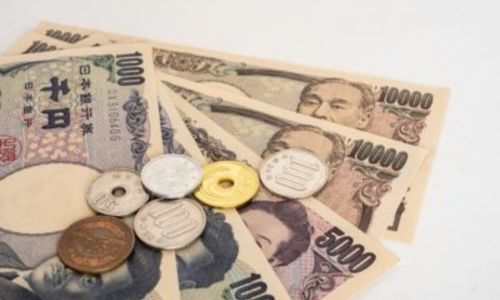
Managing Finances in Japan
How Your Location Impacts Your Spending
In Tokyo’s wards like Setagaya-ku, the median income in Tokyo helps determine how much people can afford for housing. The minimum salary in Tokyo may not cover the rising costs in central districts, making it important to choose neighborhoods wisely when renting an apartment in Tokyo.
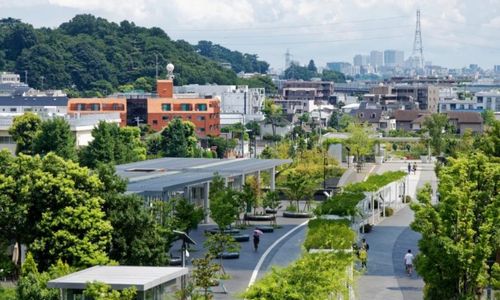
Setagaya Living Costs Snapshot
Personal Spending Patterns and Daily Lifestyle Choices
For those earning a normal salary in Japan or a median Japanese income, managing lifestyle expectations is essential. While Japan offers convenience and safety, overspending can easily happen without smart planning, especially for individuals from the middle class income in Japan.
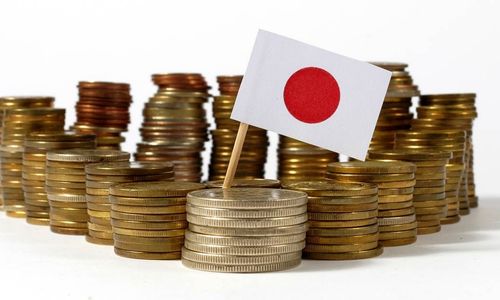
Living on Average Salary Japan
Choosing the Best-Fit Accommodation Type
Whether you’re planning to rent an apartment in Tokyo or looking to purchase an apartment in Japan, housing is by far the largest monthly expense. The rent for a studio in central areas is significantly higher than in outer wards, so renting an apartment Tokyo style requires balancing location with budget.

Cost of Housing in Tokyo
Travel Time and Available Transit Choices
If you’re earning the median salary in Japan or even the monthly minimum wage in Japan, transportation choices will impact your remaining budget. A train pass may be affordable, but for those earning at or near the minimum wage in Japan per month, every yen counts.
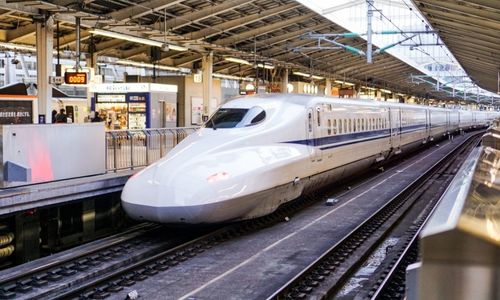
Japan Transport Costs on Budget
A Thorough Breakdown of Your Monthly Costs
Tokyo is one of the most dynamic cities in the world, and also one of the most expensive. Whether you’re relocating for work, study, or looking into Tokyo flats for sale, understanding daily costs is essential. From rent and food to transportation and health insurance, here’s a detailed guide to help you plan your monthly budget in the Japanese capital.
Rent and Accommodation Costs
Tokyo’s property market is diverse, from compact studios to spacious multi-bedroom flats. If you’re considering renting an apartment in Tokyo, here’s what to expect:
- Small units (1K or studio-style): Start from ¥60,000/month in outer areas
- Mid-size apartments (1LDK or 2DK): Usually range between ¥100,000–¥150,000/month
- Larger family-sized units (2LDK or 3LDK): Begin at ¥180,000/month
- Unfurnished apartments in Tokyo often offer better value, but require upfront costs for appliances
- Looking to buy? Tokyo flats for sale start from around ¥35 million, but prime locations command much higher prices
- Common types of apartments in Japan include “mansion” (modern concrete apartments), “apaato” (wooden structures), and share houses for students or singles
Monthly Utilities: Power, Water Supply, Internet, and Gas Services
Utility costs vary based on apartment size, season, and whether you live in a typical Tokyo apartment or a newer building:
- Electricity: ¥5,000–¥10,000 per month
- Water: ¥2,500–¥4,000, billed bi-monthly
- Gas: ¥3,000–¥6,000, especially higher in winter
- High-speed internet: ¥4,000–¥6,000/month, often included in newer leases
- SIM plans: Mobile services start from ¥1,000/month
Meal Expenses: Home Cooking and Eating Out
Food expenses depend largely on your lifestyle. Cooking at home in your apartment will cost less than dining out regularly:
- Monthly groceries: Typically ¥30,000–¥50,000 for one person
- Casual meals (gyudon, ramen, set meals): ¥500–¥1,000
- Mid-range restaurants: ¥1,200–¥3,000 per meal
- Dining out regularly can easily push your monthly food budget over ¥60,000
- Farmers markets and budget supermarkets help lower costs if you enjoy cooking at home
Transportation: Trains, Buses, and Personal Travel
Getting around Tokyo is convenient thanks to one of the world’s most efficient transit systems:
- Monthly commuter passes: ¥10,000–¥15,000 depending on distance
- Per ride (using Suica or Pasmo): ¥200–¥300
- Living in Tokyo suburbs may increase commuting time, but often lowers rent
- Many residents prefer bikes for short distances to cut costs
- Owning a car is uncommon due to high insurance and limited parking
Healthcare and Insurance Costs
Health insurance is mandatory and helps keep medical costs manageable:
- National Health Insurance premiums: Based on income, usually 7–10%
- Cost per clinic visit with insurance: ¥2,000–¥3,000
- Without insurance: Expect to pay up to ¥10,000 or more
Some clinics in central Tokyo offer English-speaking services, though often at a premium
Leisure Expenses: Shopping, Entertainment, and Personal Purchases
Your lifestyle greatly influences how much you’ll spend outside essential needs:
- Clothing & personal items: ¥10,000–¥20,000/month
- Entertainment (gyms, cafes, karaoke, nightlife): ¥8,000–¥15,000/month
- Subscription services (Netflix, Spotify): Around ¥1,000–¥2,000/month
- Dating and outings: ¥10,000–¥25,000 depending on preferences
Whether you’re living solo in a 1K apartment or as a couple in a 2LDK, budgeting for leisure is key to enjoying life in Japan.
Estimated Monthly Budget by Demographic
Planning your move to Tokyo? Your monthly expenses will largely depend on your lifestyle, income level, and living arrangements. Whether you’re a solo professional, a couple, or a small family, here’s what a realistic cost of living looks like based on current economic data and Tokyo median income 2025 trends.
|
Category |
Single Professional |
Couple (No Kids) |
Family with Children |
|
Rent & Housing |
¥70,000–¥130,000 |
¥140,000–¥180,000 |
¥180,000–¥250,000+ |
|
Utilities & Internet |
¥15,000–¥20,000 |
¥25,000–¥30,000 |
¥30,000–¥40,000 |
|
Food & Groceries |
¥35,000–¥60,000 |
¥70,000–¥100,000 |
¥100,000–¥130,000 |
|
Transportation |
¥10,000–¥15,000 |
¥20,000 |
¥30,000+ |
|
Healthcare & Insurance |
¥15,000–¥30,000 |
¥30,000–¥50,000 |
¥50,000–¥70,000 |
|
Lifestyle & Leisure |
¥20,000–¥30,000 |
¥30,000–¥40,000 |
¥40,000–¥60,000 |
Estimated Total | ¥180,000–¥250,000 | ¥320,000–¥400,000 | ¥450,000–¥600,000+ |
International Students
Students in Tokyo often live in dormitories, share houses, or compact 1R or 1K apartments to keep rent affordable. Many part-time jobs pay based on Tokyo minimum wage 2025, currently around ¥1,150/hour.
|
Expense Category |
Estimated Cost (JPY) |
|
Rent (shared or 1R unit) |
¥45,000–¥80,000 |
|
Utilities & Internet |
¥10,000–¥15,000 |
|
Groceries & Dining |
¥25,000–¥40,000 |
|
Transportation |
¥8,000–¥12,000 |
|
Mobile & Subscriptions |
¥3,000–¥5,000 |
|
Entertainment & Personal |
¥10,000–¥15,000 |
|
Total (approx.) |
¥100,000–¥160,000 |
Look for unfurnished apartments in Tokyo with short-term lease options near universities.
Single Working Professionals
Singles earning the typical Japanese salary (¥300,000–¥400,000/month) or near the Tokyo average salary 2025 (~¥425,000) can live comfortably in city-center or suburban areas.
|
Expense Category |
Estimated Cost (JPY) |
|
Rent (1K or 1LDK) |
¥70,000–¥130,000 |
|
Utilities & Internet |
¥15,000–¥20,000 |
|
Food & Dining |
¥35,000–¥60,000 |
|
Transportation |
¥10,000–¥15,000 |
|
Healthcare & Insurance |
¥15,000–¥25,000 |
|
Shopping & Entertainment |
¥20,000–¥30,000 |
|
Total (approx.) |
¥180,000–¥280,000 |
Living just outside the 23 wards can help reduce rent while keeping commuting times reasonable.
Small Families and Couples
For couples or families with children, the cost rises with larger Tokyo apartment types (e.g., 2LDK or 3LDK), private schooling options, and higher food needs. Many households earn close to the Tokyo median household income 2025 (~¥4.8M/year or ¥400,000/month).
| Expense Category | Estimated Cost (JPY) |
| Rent (2LDK–3LDK) | ¥160,000–¥250,000 |
| Utilities & Internet | ¥30,000–¥40,000 |
| Food & Groceries | ¥80,000–¥130,000 |
| Transportation | ¥20,000–¥35,000 |
| Insurance & Healthcare | ¥40,000–¥70,000 |
| Childcare & Education | ¥30,000–¥60,000+ |
| Lifestyle & Misc. | ¥30,000–¥50,000 |
| Total (approx.) | ¥390,000–¥600,000+ |
Consider Tokyo suburbs like Kichijoji or Setagaya for better value homes and access to parks, schools, and larger types of houses in Japan, such as detached homes or maisonettes.
Comparing Living Expenses in Tokyo vs Other Areas
Living expenses in Tokyo are significantly higher than in other parts of Japan. The table below outlines key monthly costs in Tokyo, Osaka, and regional cities, helping you assess affordability based on your income level, especially if you’re earning around the Tokyo average salary or within the national range of wages in Japan.
| Category | Tokyo (2025) | Osaka | Regional Cities |
| Rent (1LDK apartment) | ¥100,000 – ¥150,000 | ¥70,000 – ¥110,000 | ¥45,000 – ¥80,000 |
| Essential Utilities: Electricity, Water, and Internet Services | ¥12,000 – ¥20,000 | ¥9,000 – ¥15,000 | ¥8,000 – ¥12,000 |
| Groceries & Supermarket | ¥40,000 – ¥60,000 | ¥35,000 – ¥50,000 | ¥30,000 – ¥45,000 |
| Dining Out | ¥1,000 – ¥1,500/meal | ¥800 – ¥1,200/meal | ¥700 – ¥1,000/meal |
| Transportation (monthly) | ¥10,000 – ¥15,000 | ¥5,000 – ¥10,000 | Mostly private vehicles used |
| Entertainment & Fitness | ¥10,000 – ¥20,000 | ¥8,000 – ¥15,000 | ¥5,000 – ¥10,000 |
| Estimated Monthly Total | ¥180,000 – ¥300,000 | ¥140,000 – ¥220,000 | ¥100,000 – ¥180,000 |
If your income is close to the Tokyo median household income 2025, living in the capital is manageable with good budgeting. However, cities like Osaka or Tokyo suburbs offer more affordable housing options and everyday expenses, ideal for students, young professionals, or small families seeking a better balance between cost and quality of life.
Smart Ways to Cut Costs While Living in Japan
Living in Japan doesn’t have to be expensive if you know where to cut costs. Choosing neighborhoods outside central Tokyo can greatly reduce rent while still offering quick train access. Shopping smart, like buying discounted groceries in the evening or using reward cards, helps lower daily spending. Cooking at home is not only healthier but also far cheaper than eating out. Monthly commuter passes can save you thousands of yen, especially if you travel regularly.
Switching to budget phone plans, buying second-hand items, and using public services like libraries or parks are also great ways to live well without overspending. Whether you’re earning the average Tokyo salary or working with a tighter budget, these habits make life in Japan more affordable.
Conclusion
Getting a realistic view of living expenses in Japan is key to settling in with confidence, especially in large cities like Tokyo, where costs can shift based on where and how you live. From housing and daily essentials to commuting and lifestyle choices, understanding these factors early on helps you avoid financial surprises.
For those navigating the rental market, working with experienced agencies like Arealty can make the process of finding a suitable home smoother and more transparent. Whether you’re moving alone or with family, Japan offers a balanced lifestyle that combines modern comfort with cultural charm, affordable and accessible, if you know how to plan wisely

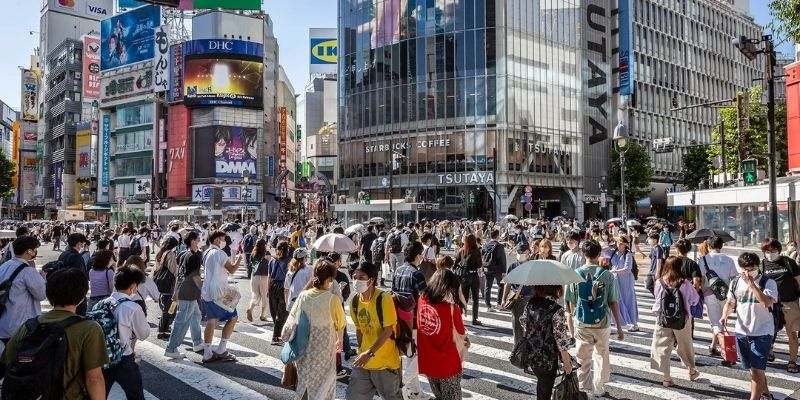

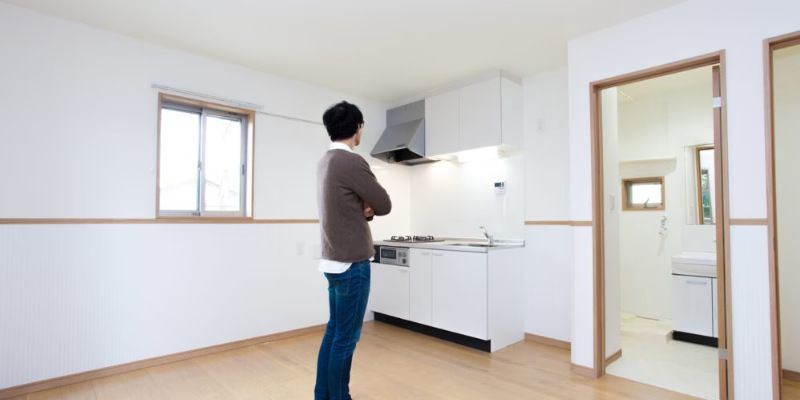
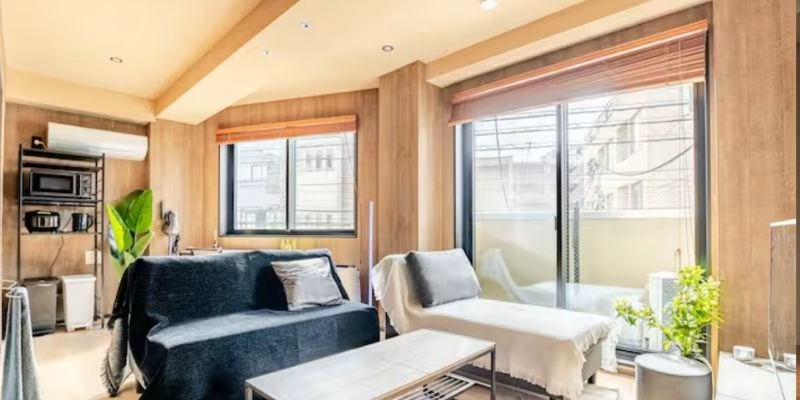

Leave a Reply